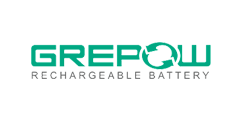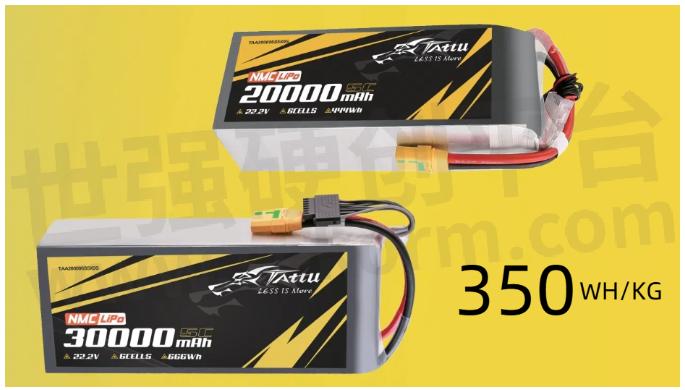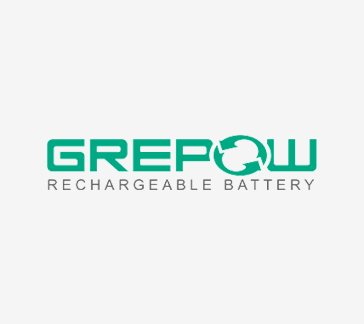What is a High Energy Density Battery?




High energy density batteries are at the forefront of modern energy storage solutions, playing a crucial role in powering everything from electric vehicles and drones to portable electronics. These batteries are defined by their ability to store large amounts of energy in a compact, lightweight form, making them ideal for applications where space and weight are limited. In this article, we explore what makes a battery high-energy, identify the current leaders in the field, and discuss the science behind its high performance, focusing on the materials and technologies that enable such impressive energy storage capabilities.
What is a High energy density battery?
A high energy density battery refers to a battery that can store a large amount of energy relative to its weight (gravimetric energy density) or volume (volumetric energy density). In simpler terms, high energy density batteries are capable of delivering more power for longer periods or storing more energy in a smaller or lighter package. This is particularly important in applications like electric vehicles (EVs), drones, and portable electronics, where maximizing energy storage and minimizing size and weight are crucial.

Which Battery Has the Best Energy Density?
Currently, the battery with the highest energy density is the lithium-metal battery (especially in the form of solid-state lithium-ion or lithium-sulfur (Li-S) batteries). These are still in the research and development phase, with commercial viability still being explored, but they are showing significant potential.
Among Commercialized Batteries, Lithium-ion (Li-ion) Batteries are the current standard and offer high energy densities compared to other commercial options. The Nickel Cobalt Manganese (NCM) and Nickel Cobalt Aluminum (NCA) chemistries within lithium-ion batteries are particularly known for high energy densities. The Energy density can be up to 250–300 Wh/kg for the best Li-ion variants.
The Highest Energy Density Commercial Battery is solid-state lithium-ion batteries, which are expected to exceed the energy density of conventional lithium-ion by about 50%–100% (up to 500 Wh/kg), due to the use of lithium metal anodes and solid electrolytes.
Why Does Lithium-ion Batteries Have High Energy Density?
Lithium-ion batteries work through the movement of lithium ions (Li⁺) between the anode and cathode during charging and discharging. This ion movement, along with the flow of electrons, generates and stores electrical energy. When charging the battery, Lithium ions are extracted from the anode material (often graphite) and move through the electrolyte to the cathode. These ions are inserted into the cathode material (like lithium cobalt oxide, LCO) storing energy. Simultaneously, electrons flow through the external circuit to the anode. When discharging the battery, Lithium ions move from the cathode back to the anode through the electrolyte. This movement of ions generates an electric current that powers devices.
Based on the working principle of lithium-ion batteries, we can see that their high energy density primarily comes from the unique properties of lithium ions themselves, the high-capacity anode and cathode materials, and the highly efficient electrolyte materials that facilitate ion transport.
High Specific Energy of Lithium
Lithium is the lightest metal, and its small atomic size allows it to store more energy per unit of mass (high gravimetric energy density). This means that lithium-based batteries can store more energy with less weight compared to other metals used in other battery types, such as lead in lead-acid batteries or zinc in alkaline batteries.
High-Capacity Electrode Materials
The cathode and anode materials used in Li-ion Batteries are optimized to maximize the number of lithium ions that can be stored without compromising the battery's cycle life or safety.
Graphite is the most common anode material, and it can store lithium ions effectively. Silicon-based anodes offer even higher capacities than graphite, but they tend to suffer from volume expansion issues. For cathode, Lithium-ion batteries often employ high-capacity cathode materials like lithium cobalt oxide (LCO) and lithium nickel manganese cobalt oxide (NMC). These materials can store a significant amount of energy.
High Ionic Conductivity (Electrolyte)
Electrolytes with high ionic conductivity facilitate the movement of ions between the anode and cathode, improving energy density.
Lithium-ion batteries typically use liquid electrolytes that facilitate the rapid movement of lithium ions between the electrodes. This efficient ion transport minimizes energy loss during charging and discharging.The solid electrolyte used in Li-ion batteries is more efficient than the liquid electrolytes used in many other battery types, allowing for a higher density of energy storage in a given volume (volumetric energy density).
How to improve the energy density of Lithium-ion batteries?
Improving the energy density of lithium-ion (Li-ion) batteries is a key area of research, as it directly impacts the battery's performance in terms of capacity, runtime, and size. The energy density of a Li-ion battery is primarily determined by the materials used in the cathode, anode, and electrolyte. Below are the strategies for improving energy density from each of these perspectives:
1. Cathode Improvement
The cathode material plays a critical role in determining the overall capacity of a lithium-ion battery. The energy density of the cathode depends on the material's ability to store and release lithium ions efficiently.
●High-Nickel Cathodes: Increasing the nickel content in layered oxide cathodes (NMC, NCA) significantly boosts energy density, as nickel can store more lithium ions than cobalt.
●NMC: These are a popular choice due to their balance of energy density, cost, and safety. Further optimization of their composition and structure can lead to improvements. Higher nickel content (e.g., NCM 811, which has 80% nickel) improves the energy density.
2. Anode Improvement
The anode material is equally important in determining the battery’s energy storage capabilities. Traditionally, graphite is used as an anode material, but there are several ways to improve the anode to increase energy density.
●Silicon-based Anodes: Silicon has a much higher theoretical capacity than graphite (around 4,200 mAh/g compared to graphite's 372 mAh/g), which means that silicon can store significantly more lithium ions. Silicon anodes are prone to volume expansion and mechanical degradation during cycling, which can lower the battery's cycle life. Strategies to overcome this include using silicon-carbon composites, nano-structured silicon, or silicon oxide to mitigate expansion issues.
●Lithium Metal Anodes: Lithium metal anodes offer even higher theoretical capacities than silicon (about 3,860 mAh/g), but dendrite formation during cycling leads to safety risks and short cycle life. Solid-state electrolytes and advanced surface coatings are potential solutions.
3. Electrolyte Improvement
The electrolyte in a lithium-ion battery facilitates the flow of lithium ions between the anode and cathode. Its composition can influence the energy density, stability, and safety of the battery.
●Solid-State Electrolytes: Solid-state electrolytes (such as ceramic or sulfide-based electrolytes) can replace the liquid electrolyte. They offer high ionic conductivity, improved safety (no flammability), and the possibility of using lithium metal anodes, leading to higher energy densities.
●Ionic Liquids and Polymer Electrolytes: Ionic liquids are non-flammable, high-temperature electrolytes that can help increase the safety and stability of the battery while potentially enabling higher energy densities. Polymer electrolytes are flexible and can be tailored for solid-state applications, contributing to increased safety and possibly improving volumetric energy density.
As the demand for more efficient and longer-lasting energy sources continues to rise, the development of high energy density batteries remains a critical area of innovation. From advancements in cathode and anode materials to the potential of solid-state electrolytes, researchers are pushing the boundaries of what's possible to improve battery performance. Grepow's high energy density semi-solid-state battery uses advanced High-Nickel NMC cathode materials, silicon-carbon anode materials, and coated diaphragm technology, with a maximum energy density of up to 350 Wh/kg. This makes it an excellent choice for applications requiring lightweight and high-performance power sources, such as drones, humanoid robots, and consumer electronics where weight is a critical factor.
- |
- +1 赞 0
- 收藏
- 评论 0
本文由雪飘梦飞转载自Grepow Official Website,原文标题为:What is a High Energy Density Battery?,本站所有转载文章系出于传递更多信息之目的,且明确注明来源,不希望被转载的媒体或个人可与我们联系,我们将立即进行删除处理。
相关推荐
NMC vs NCA Battery Cell: What’s the Difference?
Choosing between NMC and NCA battery cells depends on the specific requirements of the application. NMC cells offer a versatile and cost-effective solution with balanced energy and power characteristics, making them ideal for a wide range of uses from EVs to power tools. On the other hand, NCA cells provide higher energy density and longer cycle life, making them suitable for high-performance EVs, consumer electronics, and aerospace applications.
Round LiPo Battery: A Comprehensive Guide
Round LiPo batteries offer a versatile and efficient power solution for a wide range of applications. With their compact design, high energy density, and customizable features, they are an excellent choice for modern electronic devices and specialized equipment. Grepow‘s innovative solutions further enhance the potential of round LiPo batteries, making them a reliable option for various industries.What is a Round LiPo Battery?A round LiPo battery, or round lithium polymer battery, is a type of rechargeable battery with a circular shape.
What Is a 6S LiPo Battery?
Lithium Polymer (LiPo) batteries are widely used in drones, RC vehicles, and various other applications due to their lightweight, high energy density, and power delivery. Among these, 6S LiPo batteries are particularly popular. This guide explores their specifications, types, and applications.
Grepow Batteries Suit the Design of Various Smart Shoe Products,also ISO14000 Certified
Grepow battery has high pressure of 4.35 to 4.40V and a high energy density which can also work at low temperatures while having a longer cycle life. After 1,000 cycles, the original capacity remains 80%.
How to Choose LiPo Battery for Drone?
In the world of drones, the right battery can make all the difference. Lithium Polymer (LiPo) batteries have become the go-to choice for drone enthusiasts and professionals alike, thanks to their high energy density, lightweight construction, and ability to deliver high discharge rates. If you‘re new to the drone scene or looking to upgrade your current setup, here‘s everything you need to know about LiPo batteries for drone.
Thin Film Lithium-ion Battery Vs Lithium-ion Battery: What’s the Difference?
In the rapidly evolving world of battery technology, thin film lithium-ion batteries have emerged as a promising alternative to traditional lithium-ion batteries. These batteries, with their ultra-thin structure and solid-state electrolyte, offer distinct advantages in flexibility, safety, and application potential. This article delves into the fundamental differences between thin film lithium-ion battery and conventional lithium-ion battery, exploring their respective structures, manufacturing processes, and applications across various industries.
AAM vs UAM: What’s the Difference?
In recent years, the landscape of transportation has been undergoing a transformative shift, particularly in the realm of air mobility. Concepts like Advanced Air Mobility (AAM) and Urban Air Mobility (UAM) are becoming increasingly common parlance, but what exactly do these terms mean, and how do they differ?
What Is a NMC Battery?
NMC batteries are a type of lithium-ion battery that has gained popularity in various industries due to their high energy density and long lifespan. These batteries use a combination of nickel, manganese, and cobalt in the cathode, which allows them to store a large amount of energy in a relatively small and lightweight package. NMC batteries are used in a wide range of applications, including electric vehicles, portable electronics, and renewable energy systems.
What Is A Hexacopter Drone?
The hexacopter drone typically uses a high-capacity lithium polymer battery (LiPo battery) due to its energy density and high discharge rate, which are essential for powering multiple motors efficiently.
Drone Battery FAQs
Drones typically use lithium polymer (LiPo) batteries. LiPo batteries are lightweight and have a high energy density, making them ideal for powering drones. They can also deliver high currents, which is important for the motors on a drone. LiPo batteries are rechargeable and are available in various configurations to suit different drone sizes and performance requirements.
What‘s The Cycling And Float Of a Lithium Battery?
Lithium batteries, with their high energy density and versatility, have become a staple in various applications, from portable electronics to electric vehicles. Understanding the concepts of cycling and float in the context of lithium batteries is crucial for optimizing their performance and longevity. Let‘s delve into what these terms mean and the considerations associated with them.
Grepow High Energy Density Battery Solutions for Commercial Drone
Grepow‘s high energy density battery solutions are revolutionizing the capabilities of commercial drones, offering unmatched performance and reliability. These batteries are essential for powering the next generation of unmanned aerial vehicles (UAVs) used in various professional applications.
Grepow Battery was interviewed by Global Sky Media about eVTOL Power
Grepow‘s products are mainly high-rate batteries. We will continue to develop high rate and high energy density power batteries with an energy density between 300 to 350Wh/kg while meeting a 5C to 10C fast charging and long cycle life of more than 1000 times.
What Does DIN RAIL DC UPS Mean and the Battery Power?
It can be observed that the use of lithium iron phosphate batteries as backup power for DIN RAIL UPS is becoming a future trend. Lithium iron phosphate batteries offer numerous advantages such as long cycle life, high energy density, high safety, wide temperature range, and environmental friendliness.
Exploring LiPo Battery Connector Types
Lithium Polymer (LiPo) batteries have become the preferred power source for a wide range of electronic devices, particularly in the realm of radio-controlled (RC) hobbies. The versatility and high energy density of LiPo batteries make them ideal for applications ranging from RC cars and drones to portable electronic devices. One crucial aspect of using LiPo batteries is understanding the various connector types available. In this article, we‘ll delve into the different LiPo battery connector types, addressing key questions and providing insights into their applications.
电子商城
服务
可自由定制电池形状,锂离子聚合物/磷酸铁锂成分,放电倍率Max. 50C (持续放电倍率) / 150C (脉冲放电倍率),充电倍率:Max. 5,厚度可达0.5mm。
最小起订量: 5000 提交需求>






































































































































































































登录 | 立即注册
提交评论